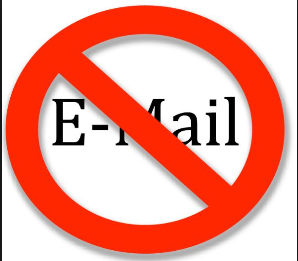Canada’s Anti-spam Law (CASL) Just Made Inbound Marketing More Important
It’s official. As of yesterday Canada’s new Anti-spam Law affectionately known as CASL came into effect. While many of us have been following, reading and sharing what we can about this new and somewhat ridiculous law, there is still a significant amount of confusion around it all. Not only do people still not understand what constitutes a commercial electronic message (CEM), but also people are debating what they have to actually do around existing business relationships.
As Canadian business owners this new law is really complicating things for us. I now have to have permission from a person in advance to send an email. Of course there are qualifications to this. For example, if someone reaches out to my business via email, I can respond. If they send me a compliant via email, I can respond. If their contact information is somewhere on the web and they haven’t deemed that they don’t want email sent to them, I can send an email. If I go to a conference and/or networking event and someone hands me her business card, then I can also send an email to that person; but and there is a but…I now need to keep said business card of every person I meet. I also need to write on the business card when and where I met said person AND just to be prudent, I should send an email asking if if is ok to send email. Kinda silly right? Right! Oh, of course I can’t add them to a mailing list for my company newsletter. This is not something I do anyway without consent, but thought I would mention it.
Oh, and I should note that just because you live in the United States or Great Britain, you should know that this law also applies to YOU. Indeed. Anyone sending a commercial electronic message that could be read IN Canada is covered by CASL. I along with thousands and thousands of Canadians are wondering how this will be enforced outside of Canada. For legitimate companies, they will comply and try to ensure that they get us to “opt-in” and offer an opt-out option, but it is not really those companies that are the issue. No, of course not. There are people from other areas, which shall not be named herein, that use masking services and send unsolicited email all of the time. This law will not mean a thing to them AND they will continue to send their email, unscathed and untouched.
So, it has become ever so more important for companies to employ inbound marketing as a normal course of business. If you haven’t established inbound marketing techniques you definitely need to. While there are many great advantages to having an inbound strategy, one of them is having people opt-in every time they download your great content. For those in Canada who don’t want to run the risk of millions of dollars in fines, you will want to learn about this ASAP. (Oh, and I can help, but I digress).
I really can’t wait to see how this all unfolds over the next 36 months, which is our grace period to get consent. I know that I will have a lot of great blog content come out of it. However, as a business owner, and a small business at that, I can say that while I truly value the effort being made to curb spam – the intent and spirit is truly admirable for Government to take on this role – it might make it a little more challenging to do business.
Love to hear your thoughts on CASL. Will it make your life easier? Or more difficult.


Leave a Reply
Want to join the discussion?Feel free to contribute!